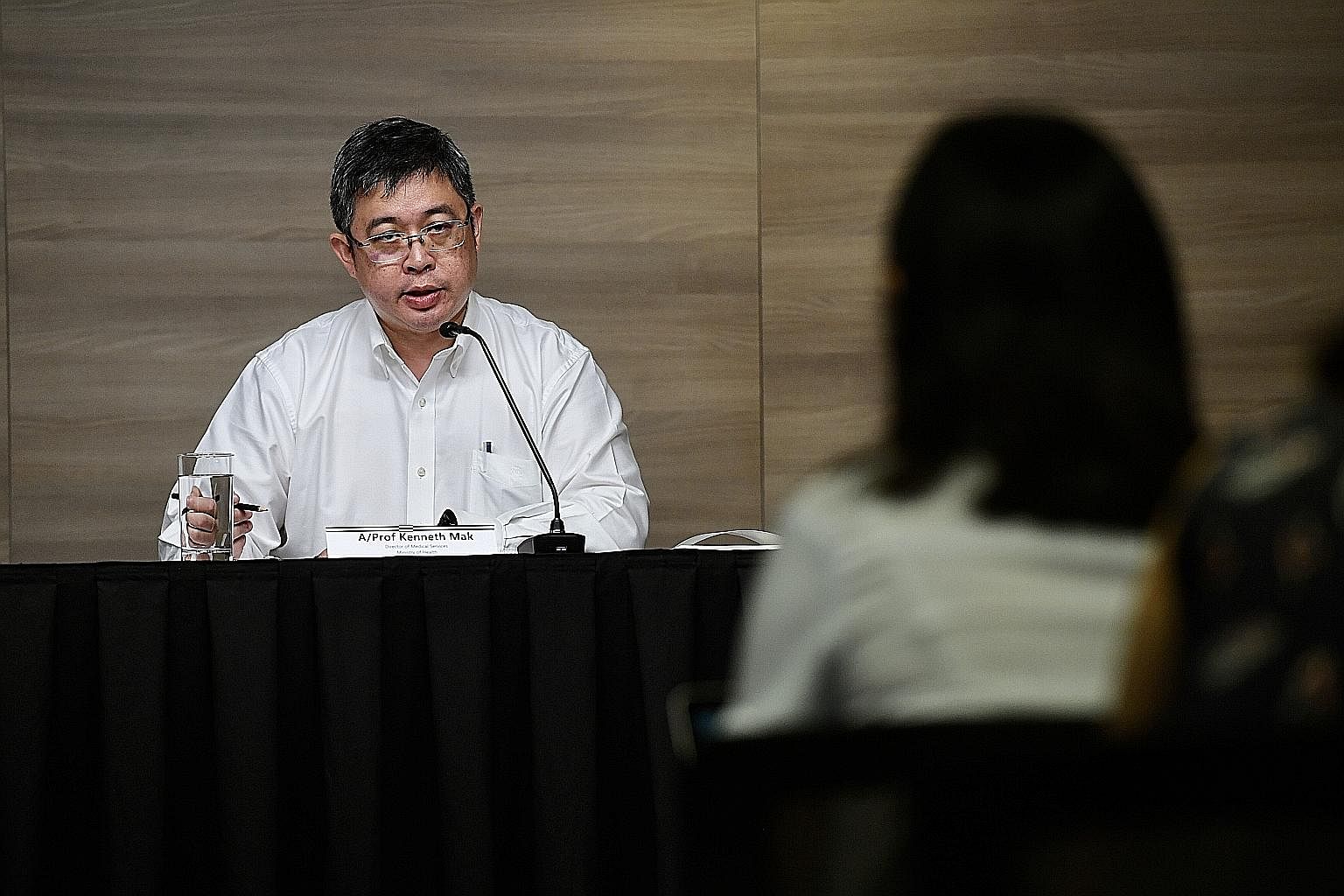Coronavirus: Front-line Fighters
Coronavirus: Top medical official's long hours in hot seat, barely a month in job
Sign up now: Get ST's newsletters delivered to your inbox

Ministry of Health director of medical services Kenneth Mak speaking to the media on Friday. Associate Professor Mak, a surgeon by training, took up the post only at the start of this month.
ST PHOTO: DESMOND FOO
Follow topic:
Talk about landing in the hot seat. Singapore's top medical authority, the director of medical services (DMS) at the Ministry of Health, is Associate Professor Kenneth Mak. And he took up the post only at the start of this month.
Prof Mak, 53, now finds himself dealing with the biggest national medical emergency since Sars: the coronavirus outbreak.
"We work every day. Even Chinese New Year was an ordinary working day for most of us," says Prof Mak, who even in the fortnight before formally taking up his position was leading the medical effort. He was previously chairman of the medical board at Khoo Teck Puat Hospital (KTPH).
Vested in him is the full authority from the Infectious Diseases Act which allows him to quarantine people or get personal data that will help in controlling an outbreak. During the severe acute respiratory syndrome (Sars) outbreak in 2003, the then DMS Tan Chorh Chuan closed one of Singapore's busiest hospitals, Tan Tock Seng, to all but Sars patients.
The DMS is the person to whom other doctors, such as Professor Leo Yee Sin who heads the National Centre for Infectious Diseases, report to.
In turn, he has to advise the country's political leaders on the situation and steps that need to be taken to keep people here safe.
Of the past month of intensive work, Prof Mak says: "The most challenging part of the work is to understand the behaviour of this virus, how it infects people and how it spreads from one person to another."
Prof Mak is a surgeon by training, so infectious diseases are not his forte. He says: "I'm grateful for having many experts in different areas who have been very willing to share their knowledge and this has been most helpful."
But in his previous position at KTPH, he learnt to see the big picture. And with 30 years as a doctor behind him, he says: "The work pressure is something that I've learnt to handle through the years."
Of the long hours, the many meetings and the almost daily press briefings, he says: "I've learnt to rest whenever I can, in order to have enough energy to deal with the many different issues."
His wife and three daughters are understanding about the time he has been spending on this outbreak. He says: "I regret having to spend so much time away from home. These days, I return home sometimes well past 9pm and they'd have to have dinner without me."
What is most worrying, he says, is the little knowledge there is of the virus. "But we are beginning to understand better how the virus spreads and how the infection manifests."
And the most rewarding experiences: "The opportunities to reach out to people who are on the front lines, in both the hospitals and clinics, to appreciate how driven and committed they are to providing the best care they can provide for their patients."

